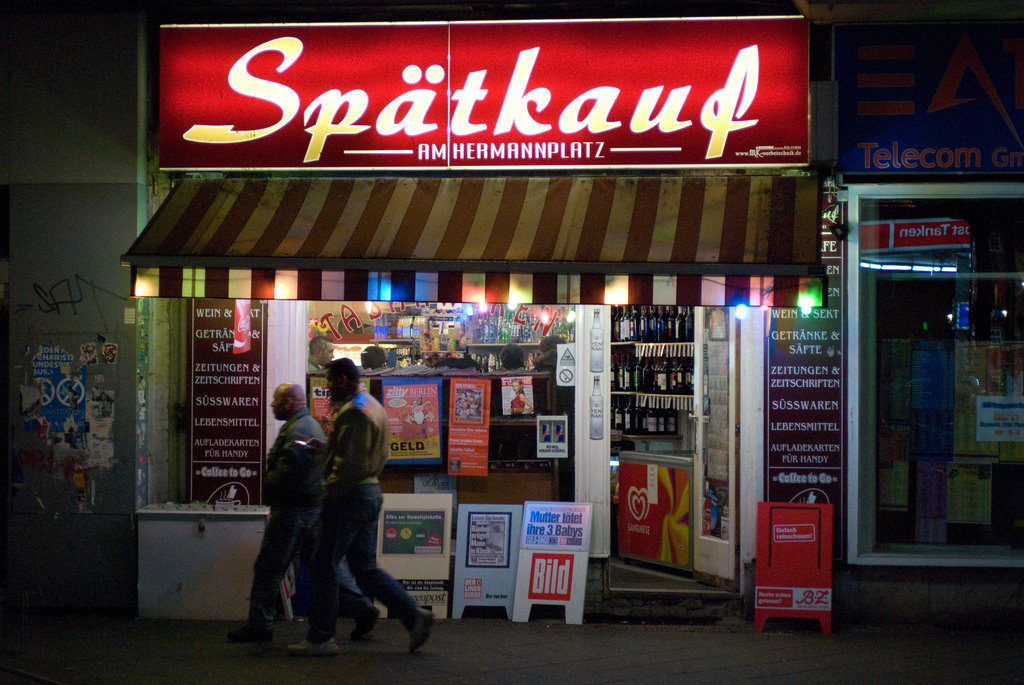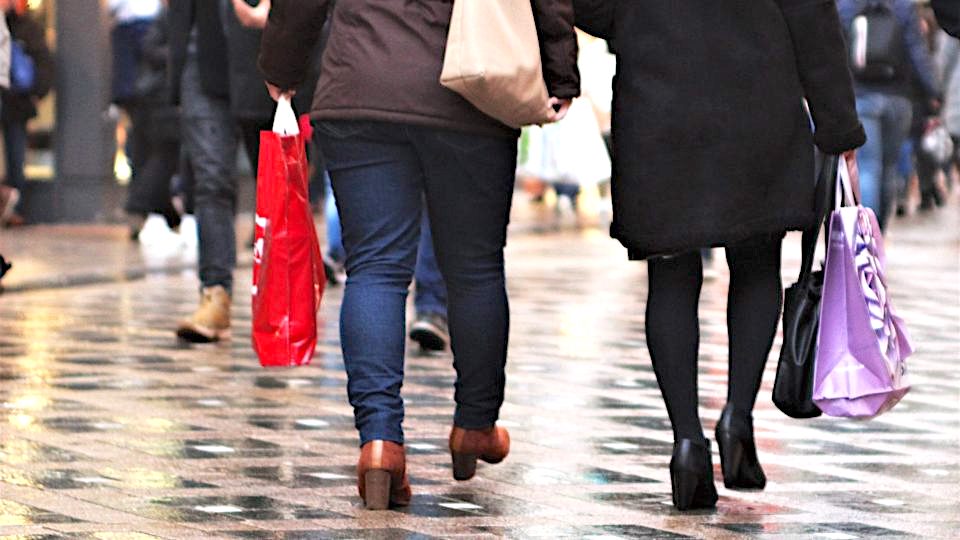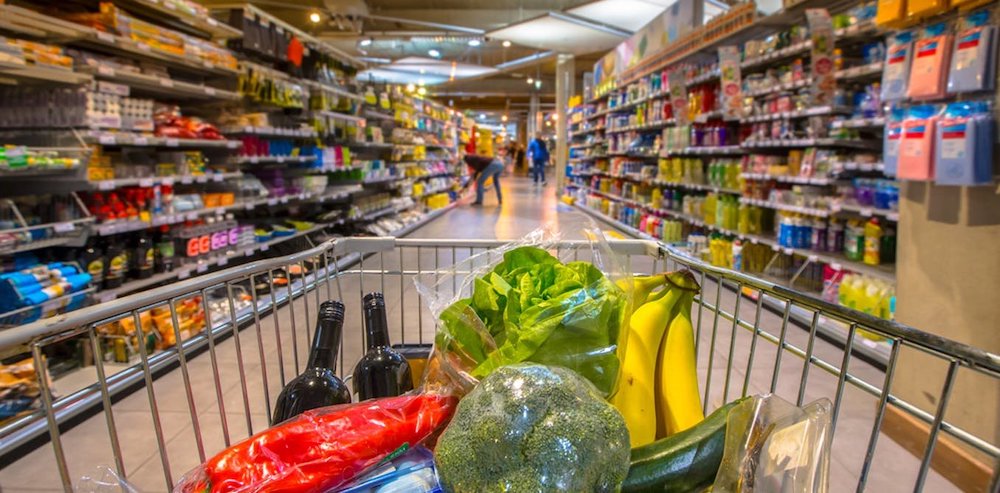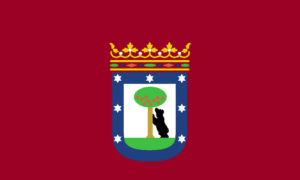The first thing that hit me after I moved to Berlin was the fact that there are no 24-hour supermarkets.
In Britain, I had been spoilt living a mere five minutes walk away from a Tesco’s and this was no fun surprise. It was already close to midnight on a Saturday night and I thought to myself, “It will be okay. A store will open tomorrow morning and we’ll be able to buy something.”
But that wasn’t the case. All stores stayed shut. Restaurants on the other hand were open so no, we didn’t starve.
But that first weekend, we quickly learned that shopping in Berlin is something we’re going to have to plan ahead of time.

THE GIST OF IT:
Grocery shopping in Berlin is doable Monday to Saturday. That’s the end of it. Find the groceries stores next to you, learn their specific opening hours and that’s when you have to do it.
Note: Same-chain shops have very different opening hours throughout the city. So if you move you have to learn the new opening hours. Everybody and their mother does their shopping on Saturdays, so pack some patience with you before leaving the house.
OK, IT’S NOT LIKE THERE REALLY ISN’T ANYTHING OPEN:
There are convenience or late-night shops but they mostly sell drinks and shockingly overpriced snacks. The occasional one will also have some emergency or last-minute supplies, but it isn’t a rule. There’s a whole network of these ‘Spätkauf’ – ‘Späti’ as they’re colloquially called – that covers the whole city.
If you haven’t found the one near you it’s possibly because you haven’t explored enough. Many of them do not have an on-line presence so you’re going to have to discover them by foot.
A SECRET:
There are grocery shops that are open on Sundays. There are only a handful of them and and they are all in S-bahn stations across the city.
When we learned about this we had to go check it out. We got on the S-bahn and went to one of the the rare open Edeka stores. Imagine last minute holiday shopping just in a smaller than usual shop.
That’s what it is like.
Each check-out has maybe 20 people waiting in line. And there are at
least as many people roaming on the aisles. “Excuse me,” “Entschuldigung,” “Sorry.” You’ll always bump into someone, there’s always someone who needs something you’re standing in front of.

ANOTHER SECRET:
Some Sundays are “Open Stores Sundays” or Verkaufsoffene Sonntage.
There are only seven of them this year, so you really have to be “in the know.” The two left for 2019 are 8 and 22 December, the first and last Sundays of the Christmas Fairs.
THURSDAY NIGHT SHOPPING IN BERLIN IS NOT A THING:
After living in the UK and Australia you learn that Thursdays are a good day for shopping. The shops are open an hour or two later on this day so you have time to squeeze in that pre-weekend shopping. That is not a thing here.
The closing hours are exact and they will all but usher you out the door when closing time is near.

SOME GROCERY STORES DELIVER:
If you’re not on a very strict budget and you have a two hour window when you can be at home to receive the delivery this could be the option for you. This is especially good if you don’t have a car, don’t have much mobility or you’re simply too busy to keep going to the shops. The service normally costs somewhere around 5 euros.
If this sounds like something you need, then all you have to do is search on-line for lieferservice lebensmittel Berlin. They deliver between 7 a.m. and 10 p.m. from Monday thru Saturday.
There are also other delivery services for drinks and medicine so if you’re stuck at home caring for someone or are throwing a last-minute party, you’re all set.

The American shopping event has now become a staple in most European countries. Hundreds of on-line and walk-in stores are offering discounts of up to 90 percent on their products. This is the time when many do their Christmas shopping.
SHOPPING ON-LINE FROM OUTSIDE THE EU:
While this is a known and ‘normal’ thing to most EU citizens, I’ve heard reactions of shock from both first-time on-line shoppers and especially from my non-EU friends:
They called me from the delivery company saying I have to pay TAX on this!
Well, my friends, count yourselves lucky: At 19 percent, Germany has one of the lower VAT rates in the EU. The German state is very diligent about collecting taxes. So if you’re ordering something from China for example, always expect to have to pay the 19-percent extra on delivery.
To sum up:
• Do your big grocery during the week if you can.
• There are no special days with longer hours
• There are shops that are open late and they are more expensive
• There are a few shops that are open on Sundays and they will always be crowded,
• There are stores that deliver
• There’s a Sunday shopping holiday coming up
• If you’re ordering anything on-line, prepare to pay import taxes.

About the author:
Meda Harsan has a passion for travel and writing. She has a background in television, financial and IT services. Meda brings her critical eye and wit to every day life.
She’s taken a break from a career at some of the world’s biggest corporations to explore the globe and herself.
Meda has lived in the United Kingdom, Australia, Poland, Romania and is now living in Berlin.














